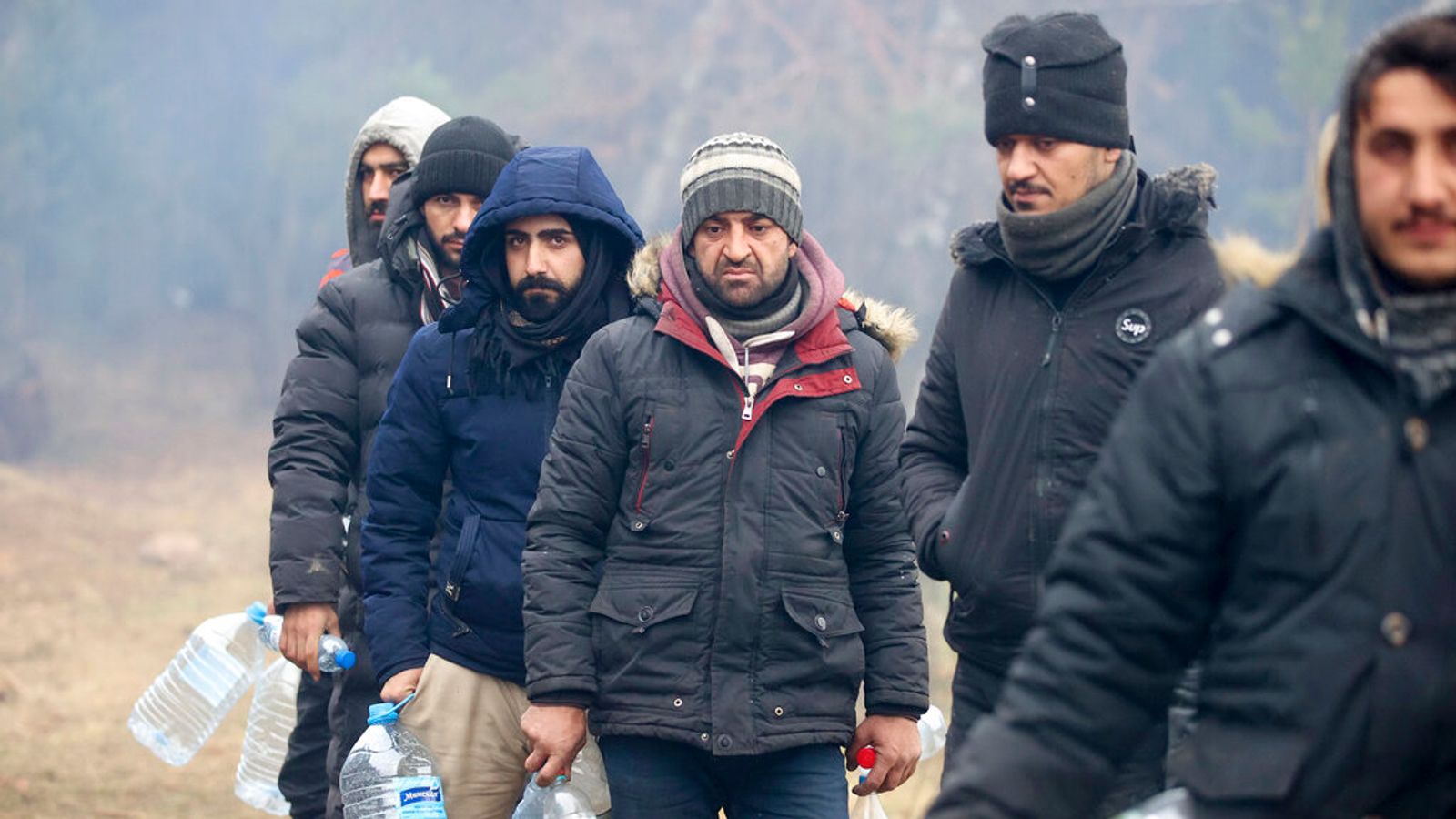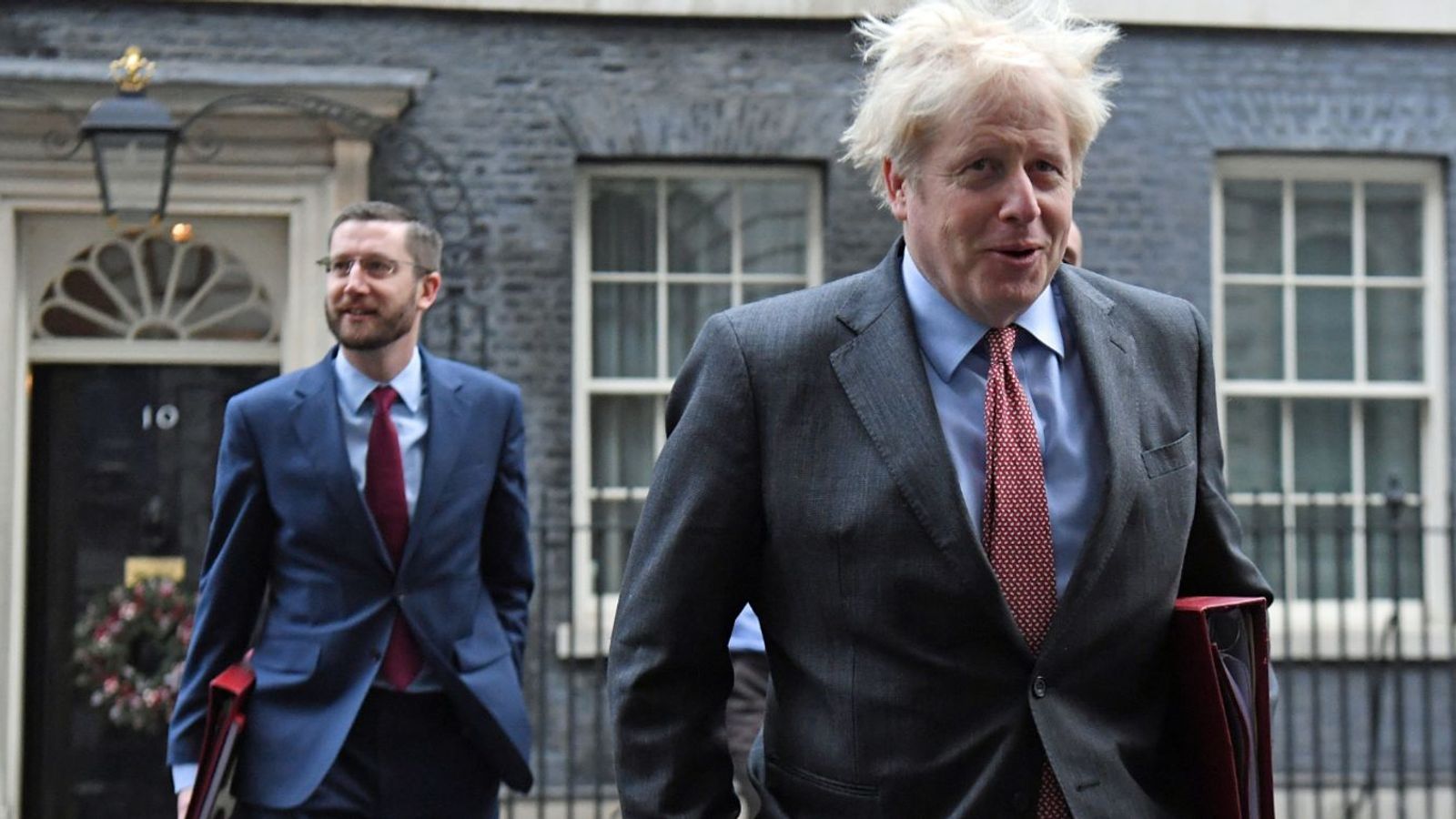The government’s announcement that it plans to send asylum seekers illegally entering the UK to Rwanda has outraged many from politicians and charities to the Church of England.
On Tuesday Labour MP Yvette Cooper said the plans are an “unworkable and desperate” attempt by Prime Minister Boris Johnson to distract from partygate and Theresa May said she did not support the policy on the grounds of “legality, practicality and efficacy”.
The Church of England joined the criticism, with the Archbishop of Canterbury, Justin Welby, describing the plan as “the opposite of the nature of God”.
Please use Chrome browser for a more accessible video player
The UK will reportedly pay Rwanda £120m and refugees could be sent to east Africa within weeks.
The government has defended the policy, with Ms Patel stating in the Commons the current dispersal system is “unfair” and overwhelmed, with local authorities sharing the burden “disproportionately”. Meanwhile Mr Johnson said it was the “morally right thing to do”.
The policy has received a great deal of backlash but it is not revolutionary, with Denmark, Israel and Australia having implemented similar mandates in recent years.
Sky News looks at why the Rwanda plan has been criticised, what the east African country gets out of the deal with the UK, and how other countries have implemented similar plans.
Rwanda’s human rights record questioned
The Rwanda plan has been pushed through by Ms Patel despite concern from her most senior civil servant, but in July last year the UK criticised Rwanda for failing to investigate human rights violations.
The UK’s international ambassador for human rights, Rita French, expressed “regret” that Rwanda was not conducting “transparent, credible and independent investigations into allegations of human rights violations including deaths in custody and torture”.
According to US non-profit Freedom House’s 2020 report: “Young Congolese and Burundian refugees are vulnerable to sexual exploitation and coerced recruitment into armed groups linked to Rwandan security forces.”
Dr Tania Kaiser, a senior lecturer in forced migration studies at SOAS University of London, told Sky News: “The Rwandan government has a fragile reputation and they don’t have many ways of scoring international credibility points.
“The UNHCR is very upfront about the fact that refugees have struggled to enjoy their rights in Rwanda.”
Financial and reputational gains for the Rwandan government
The financial benefits are an obvious attraction for Rwanda.
The reported cost for the UK scheme would, in theory, provide a major boost for its economy, but more alluring is improving its international reputation.
The policy, according to Amnesty International UK’s refugee and migrant rights director, Steve Valdez-Symonds, would help improve Rwanda’s status globally.
“Rwanda has a growing economy and welcomes the cash. It also sees it from a status and respect perspective. It is still recovering from the genocide and its extremely murky involvement in Congo,” he told Sky News.
“You’ve got a system where Rwanda has all the power in the relationship and the UK will continue to pay through the nose in the hope that somehow this is going to deliver some sort of result that politicians here will welcome.”
Read more:
Why are migrants being sent to Rwanda and how will it work?
First glimpse inside the centre that will house Channel migrants
Dr Kaiser said: “I have a very smart PhD student who is Rwandan who said there was a fairly loud chuckle about the amount of money Rwanda is receiving as a payoff for this deal.
“Politicians and journalists are speculating about what else is going on behind the scenes that sweeten the money. It’s also about local alliances and political leverage.”
Australia’s use of offshore detention centres
Australia became one of the first countries to use offshore detention centres in 2001 when it announced refugees will be sent to centres in Papua New Guinea and the Republic of Nauru.
The Pacific Solution was hardened in 2013 to deny resettlement visas to any refugees arriving by boat.
Nauru still houses 112 refugees but centres on Manus Island in Papua New Guinea, where 120 were detained, closed after the country’s Supreme Court said the centres were “illegal”.
Refugees were either transferred to Nauru or stayed in Papua New Guinea to start the process to become permanent citizens.
Human rights groups criticised the conditions in the centres, where 13 people have died from violence, medical inattention or suicide.
Australia argued its offshoring policy means deaths at sea are prevented and the government estimates it will spend A$260m (£148.4m) on offshore processing by 2023.
In March, a three-year deal was announced for 450 refugees to be sent from Australia to resettlement centres in New Zealand.
Dr Kaiser said the Australian government would likely argue the scheme “met the need at the time and doesn’t need to exist in quite the same way anymore”.
“The reason they did was 150% political, it was about sending a political message in a context where the major parties have competed with each other to demonstrate their toughness on asylum and immigration issues,” she said.
Israel’s voluntary deportation programme
Israel has seen a growing number of refugees arriving from Sudan and Eritrea.
Former prime minister Benjamin Netanyahu’s government introduced a “voluntary” policy in 2015 that saw an unnamed country – reportedly Uganda and Rwanda – take refugees.
Migrants were given a choice to return to their country, accept payment of £2,700 and a plane ticket to east Africa or be put in jail if they stayed in Israel.
By 2018, almost 30% of illegal immigrants had left Israel.
The voluntary deportation programme was heavily criticised as there was no guarantee of a migrant’s legal status or protection against further deportation, with almost 20,000 people protesting against it in Tel Aviv in March 2018.
A later plan to forcibly deport refugees was tabled in 2018 but collapsed after a Supreme Court ruling.
Israel’s foreign ministry did not respond to Sky News’ request for comment.
Denmark’s ‘zero’ refugees policy
As part of its 2019 election mandate, Denmark’s ruling Social Democratic party said a core policy was to process asylum applications outside the European Union.
The government has a “zero” refugees policy and started revoking residence permits from Syrian refugees last year.
In June, legislation was passed allowing refugees to be sent to a country outside the EU to be processed and Denmark has had talks with countries in and outside the EU about a potential deal, including Tunisia and Ethiopia.
Last year, Denmark’s immigration minister Matthias Tesfaye signed a three-year memorandum of understanding with Rwanda, which led to speculation that a processing facility would be opened in east Africa.
The Danish government has agreed to provide funding for any asylum system.
In a report published in January by the Danish Ministry of Foreign Affairs, between 2015 and 2020 almost five million asylum applications were logged, with 52% rejected.
It cost the Danish government €40,300 (£33,523) to accommodate one rejected asylum seeker in a return centre, with a €34m (£28.3m) outlay to accommodate rejected refugees.
Follow the Daily podcast on Apple Podcasts, Google Podcasts, Spotify, Spreaker
On Wednesday, Mr Tesfaye said Denmark is in talks with Rwanda to transfer asylum seekers to east Africa and the partnership will be debated in Parliament on Thursday next week.
He said the current system is “unsustainable” and over 22,000 people have died trying to cross the Mediterranean Sea, adding the UK agreement is a “good step forward”.
“We are in dialogue with Rwanda, and we have a good cooperation based on a broad partnership, but we do not have an agreement on transfer of asylum seekers,” he added.








